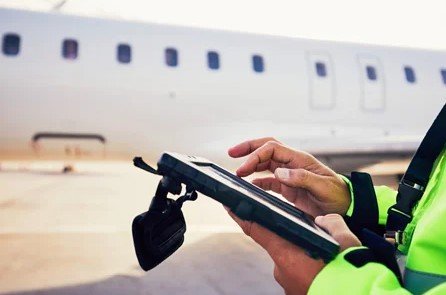Saudia, Saudi Arabia’s national airline, has renewed its IATA Operational Safety Audit under the new Risk-Based framework. This marks the eleventh straight renewal and shows the airline’s strong focus on safety as it grows its global operations in 2025.
The renewal happened just days ago, with audits covering critical areas like flight operations and maintenance. It comes as the aviation world shifts to more targeted safety checks, helping airlines like Saudia stay ahead in a fast-changing industry.
What the Renewal Means for Saudia
This achievement boosts Saudia’s reputation as a leader in aviation safety. The airline passed all checks without major issues, proving its systems meet top global standards.
Experts say this renewal helps Saudia attract more passengers and partners. With travel demand rising in the Middle East, strong safety records build trust and support expansion plans.
Saudia plans to add more routes and upgrade its fleet this year. The audit success aligns with these goals, ensuring safe growth amid increasing air traffic.

Inside the Risk-Based IATA Framework
The new Risk-Based IATA Operational Safety Audit, or RBI, changes how audits work. It uses data on each airline’s risks to focus on key areas, making checks more effective.
Unlike old methods, RBI predicts potential problems based on past performance. This approach started rolling out in 2025, with IATA requiring it for all renewal audits.
Here are some core domains covered in the audit:
- Organization Management: Looks at leadership and planning.
- Flight Operations: Checks pilot training and procedures.
- Maintenance Management: Reviews aircraft upkeep and repairs.
- Ground Operations: Ensures safe handling of baggage and boarding.
This framework helps airlines fix issues before they become big problems. For Saudia, it was the first time using RBI, and they excelled.
Industry watchers note that RBI makes safety oversight smarter. It saves time and resources while improving results.
Saudia’s Track Record and Leadership Quotes
Saudia has held IOSA certification since 2005, renewing it every two years. This latest success is the eleventh in a row, a rare feat among global carriers.
Captain Mohamed Dahduli, Saudia’s Vice President of Safety, Aviation Security, and Quality, praised the team’s hard work. He said safety is central to everything at Saudia, and this renewal shows their commitment to top standards.
The airline’s safety culture includes regular training and tech upgrades. These efforts have kept incident rates low, even as passenger numbers grow.
Other airlines, like SpiceJet and Batik Air, also renewed under similar frameworks in 2025. This trend shows the industry’s push for better safety amid recovery from past challenges.
How This Fits into Global Aviation Trends
Aviation safety is evolving with new tech and regulations. IATA’s shift to risk-based audits by 2025 aims to handle rising air travel demands.
Saudi Arabia is investing heavily in aviation, with plans for new airports and more flights. Saudia’s renewal supports these national goals, positioning the kingdom as a travel hub.
| Airline | Renewal Year | Framework Used | Key Outcome |
|---|---|---|---|
| Saudia | 2025 | Risk-Based IOSA | Eleventh consecutive renewal, no major findings |
| SpiceJet | 2025 | IOSA | Valid until 2027, focused on emergency procedures |
| Batik Air | 2025 | Risk-Based Audit | Certification until 2027, emphasized safety excellence |
| Other Carriers | 2023-2025 | Traditional to Risk-Based | Shift to predictive safety assessments |
This table highlights recent renewals, showing a pattern of airlines adopting the new framework. It reflects broader efforts to make flying safer worldwide.
Challenges remain, like supply chain issues for parts and staff shortages. But successes like Saudia’s help the industry move forward.
Future Outlook for Saudia and Aviation Safety
Looking ahead, Saudia aims to expand its network and modernize operations. The IOSA renewal gives them a solid base for these plans in 2025 and beyond.
Experts predict more airlines will embrace risk-based methods, leading to fewer accidents and better efficiency. This could lower costs and improve passenger experiences.
As global travel rebounds, safety audits like this will play a key role. Saudia is well-placed to lead, with its focus on innovation and standards.
Share your thoughts on aviation safety in the comments below. If this article helped you understand the topic, pass it along to fellow travelers.
